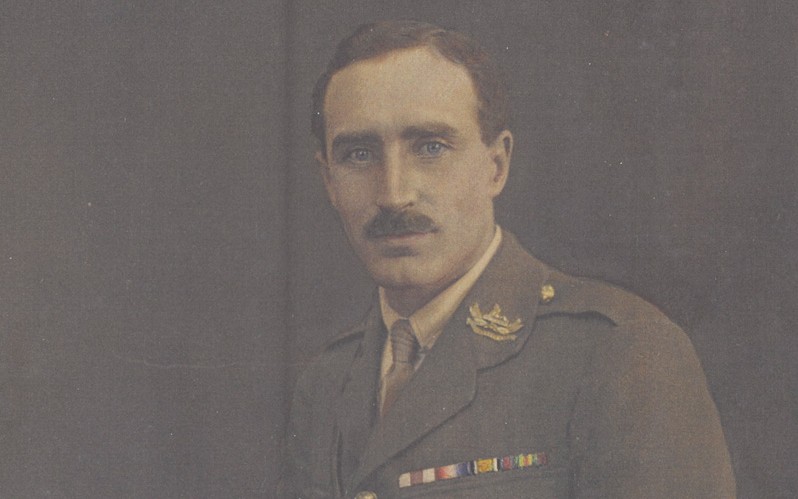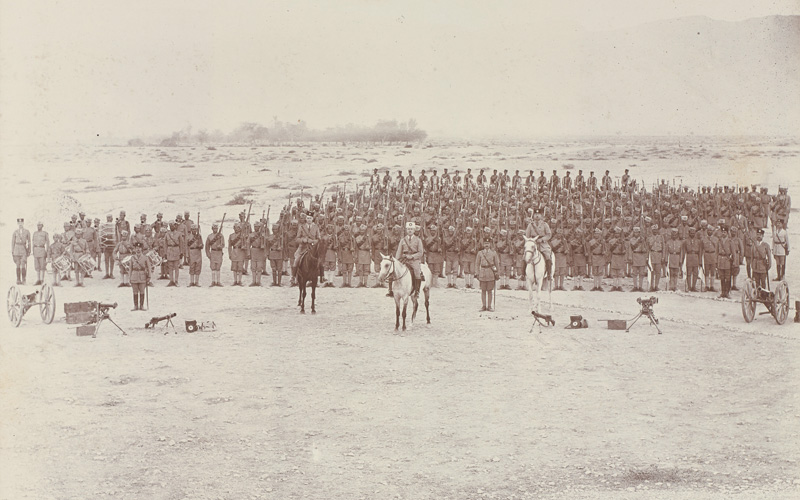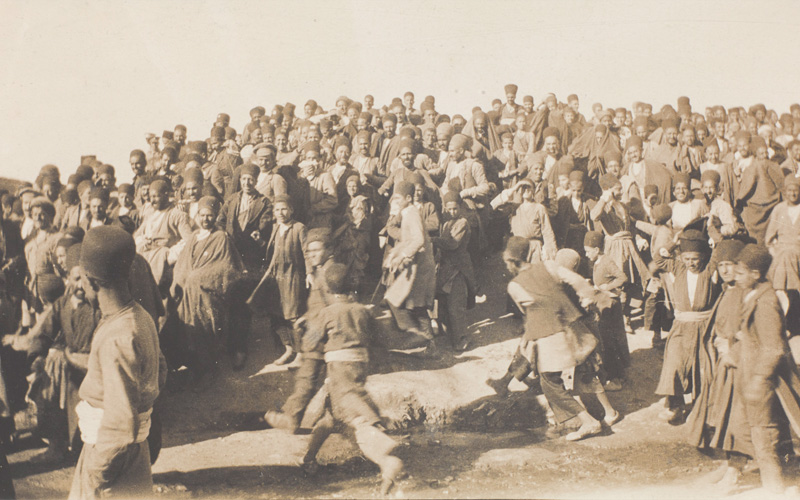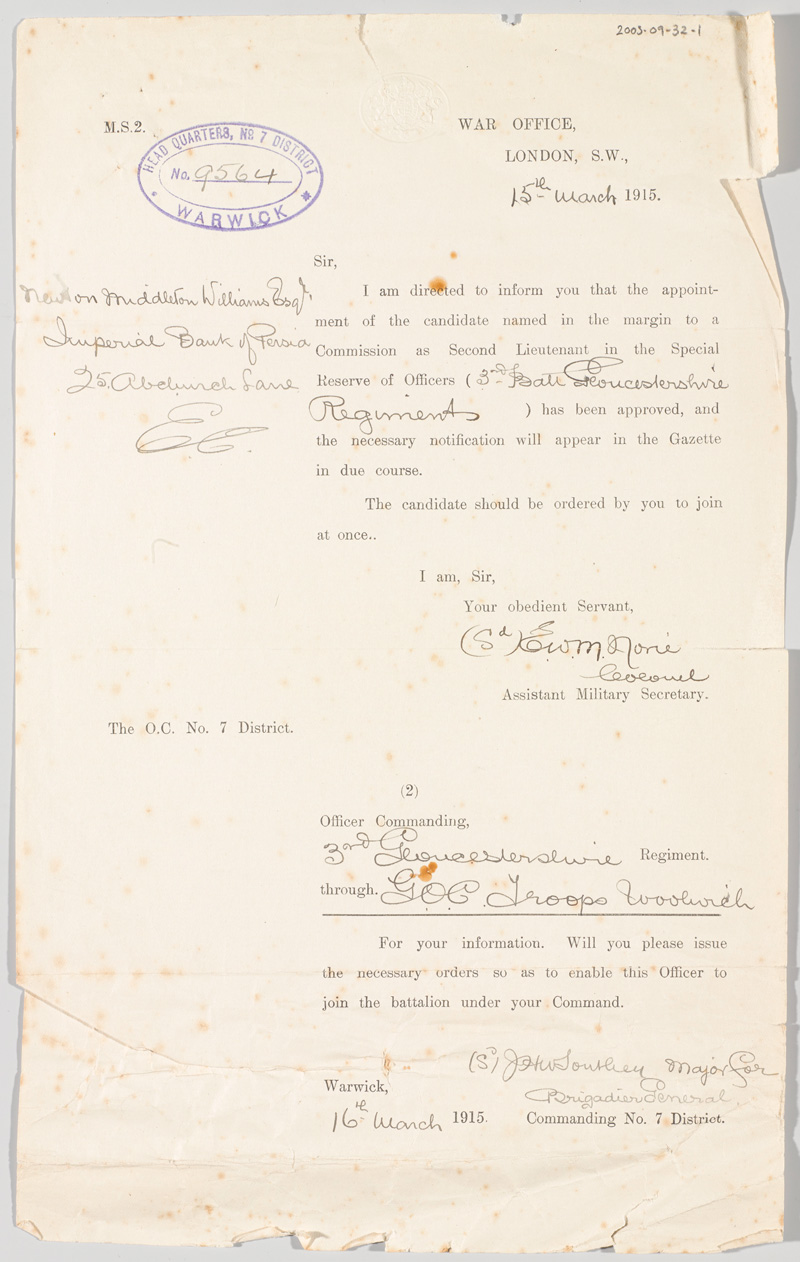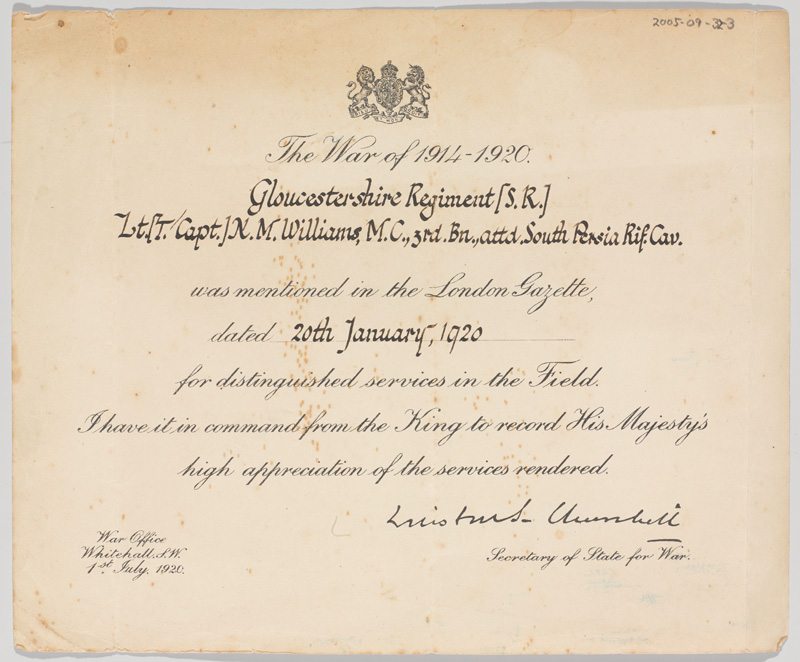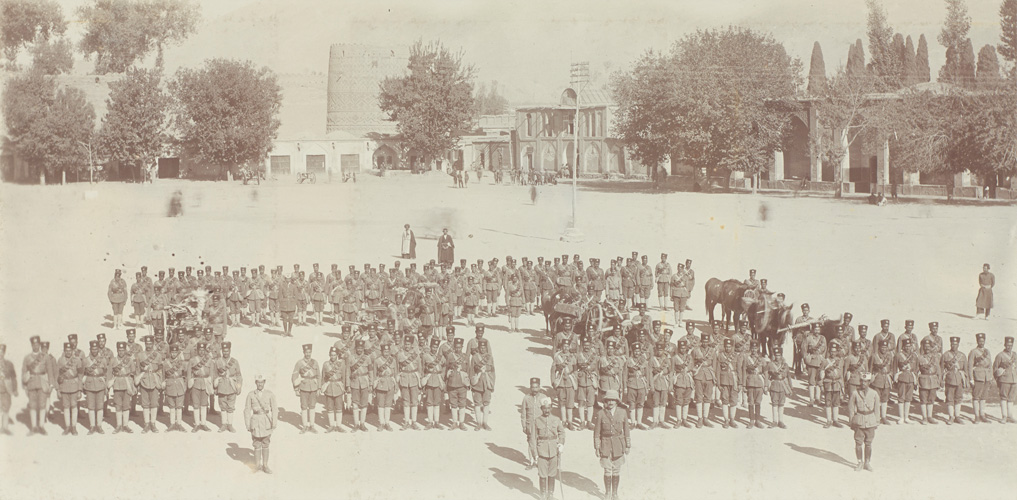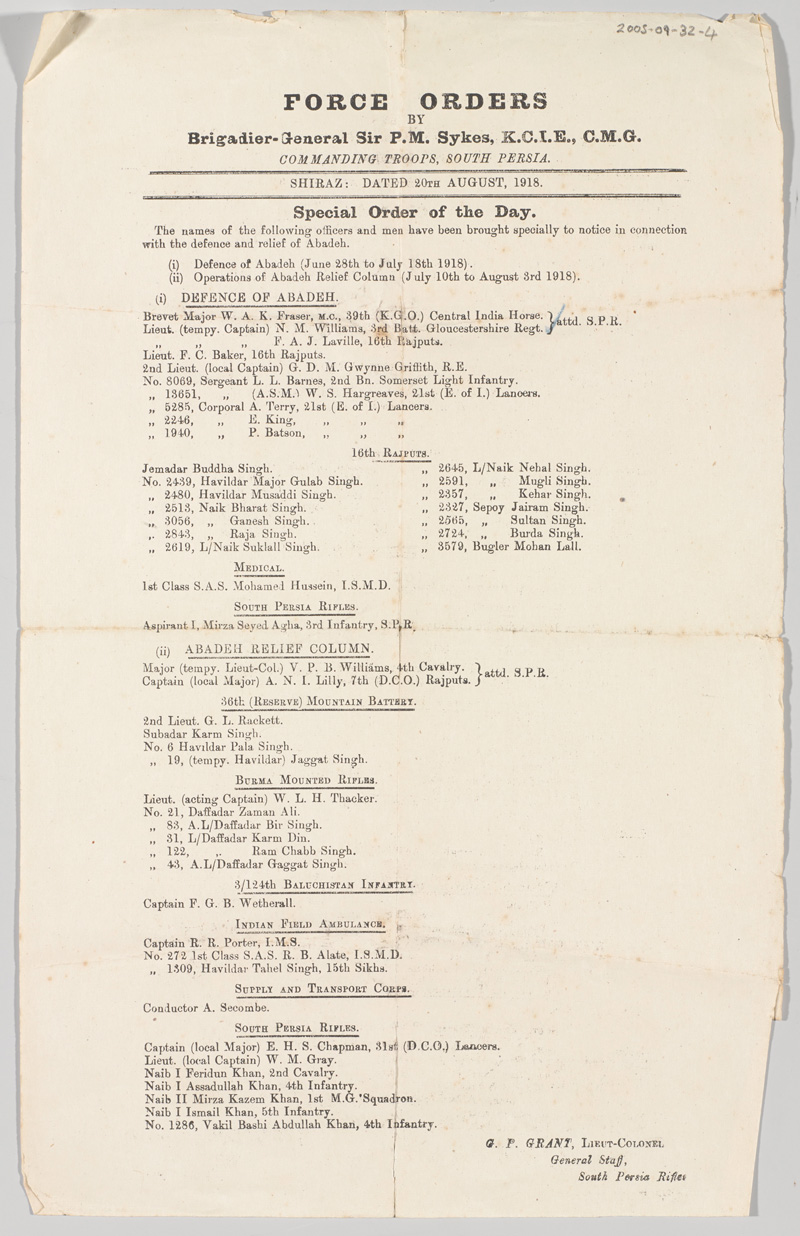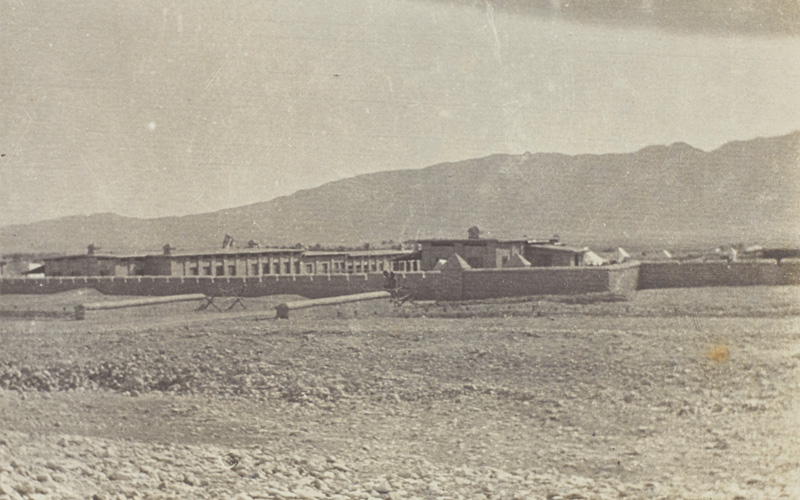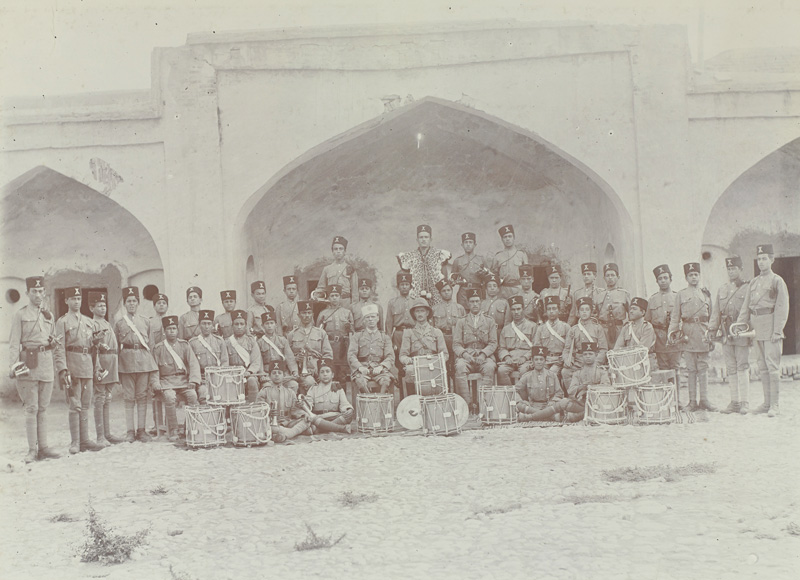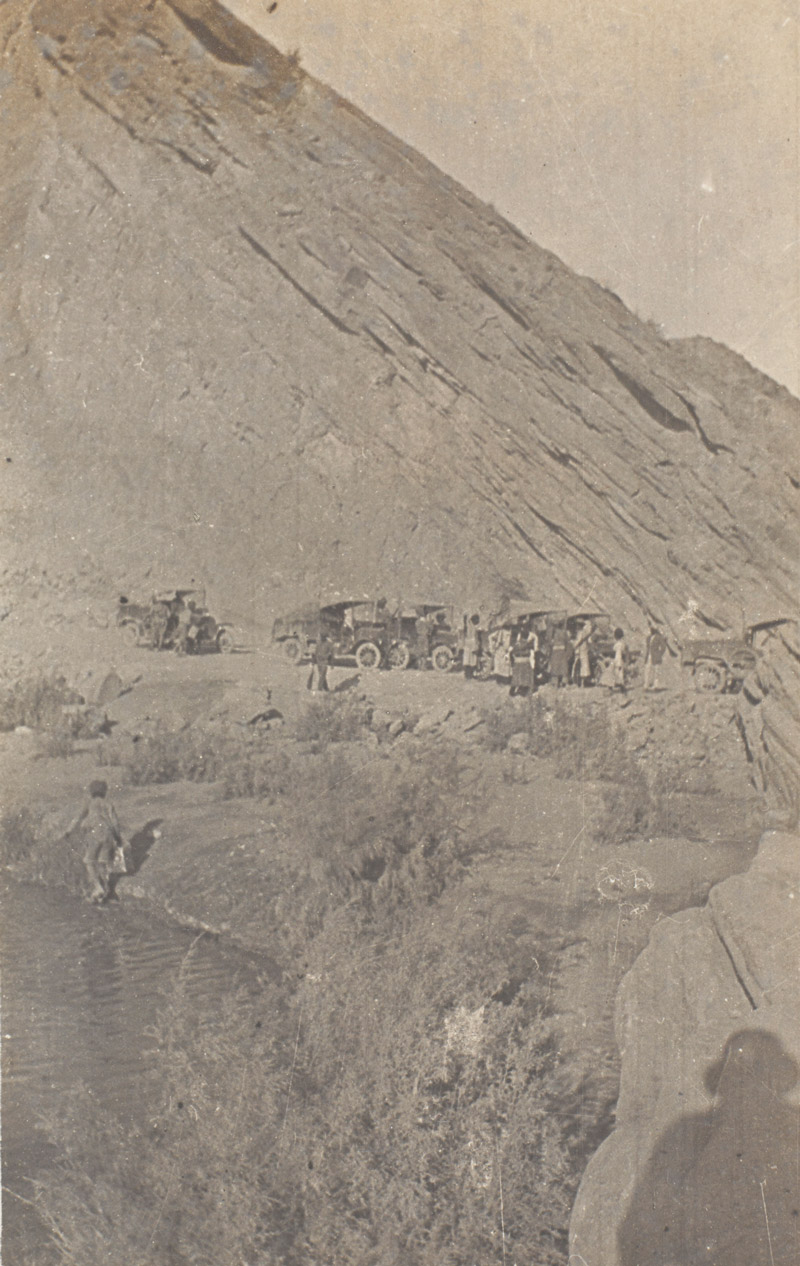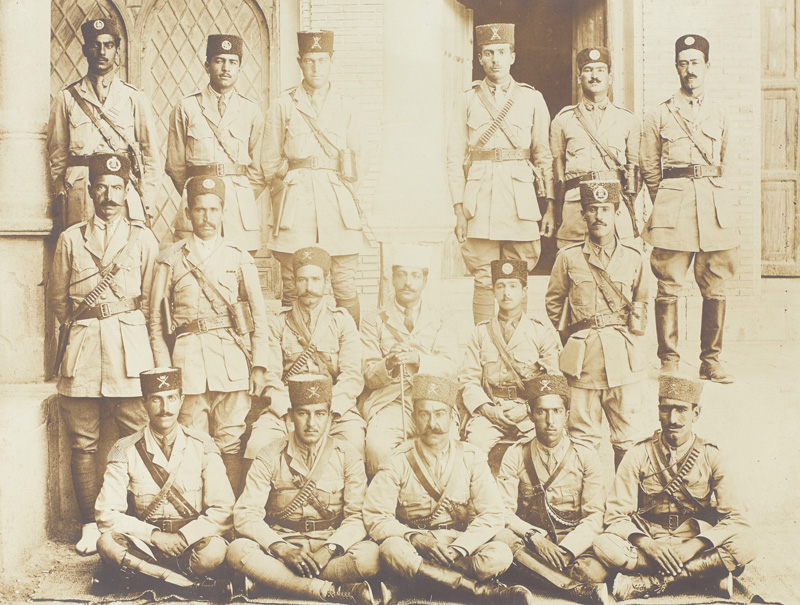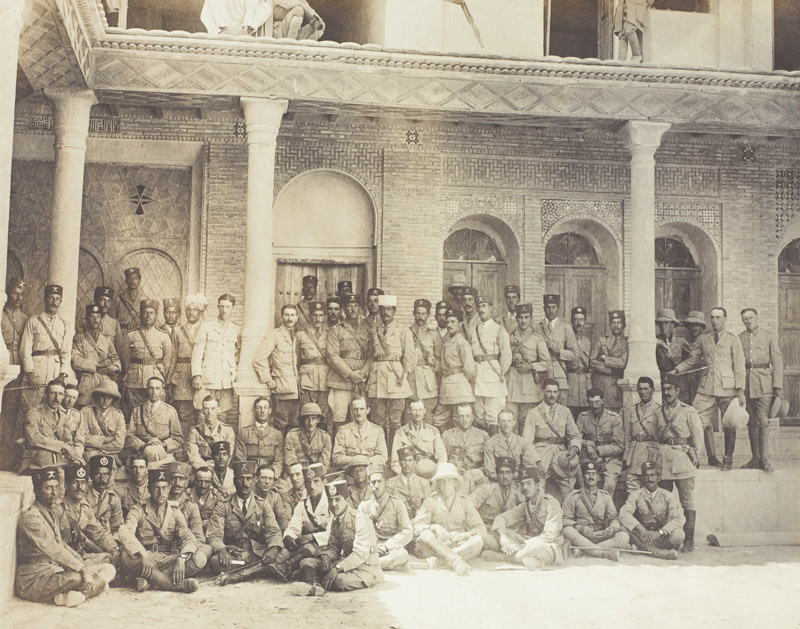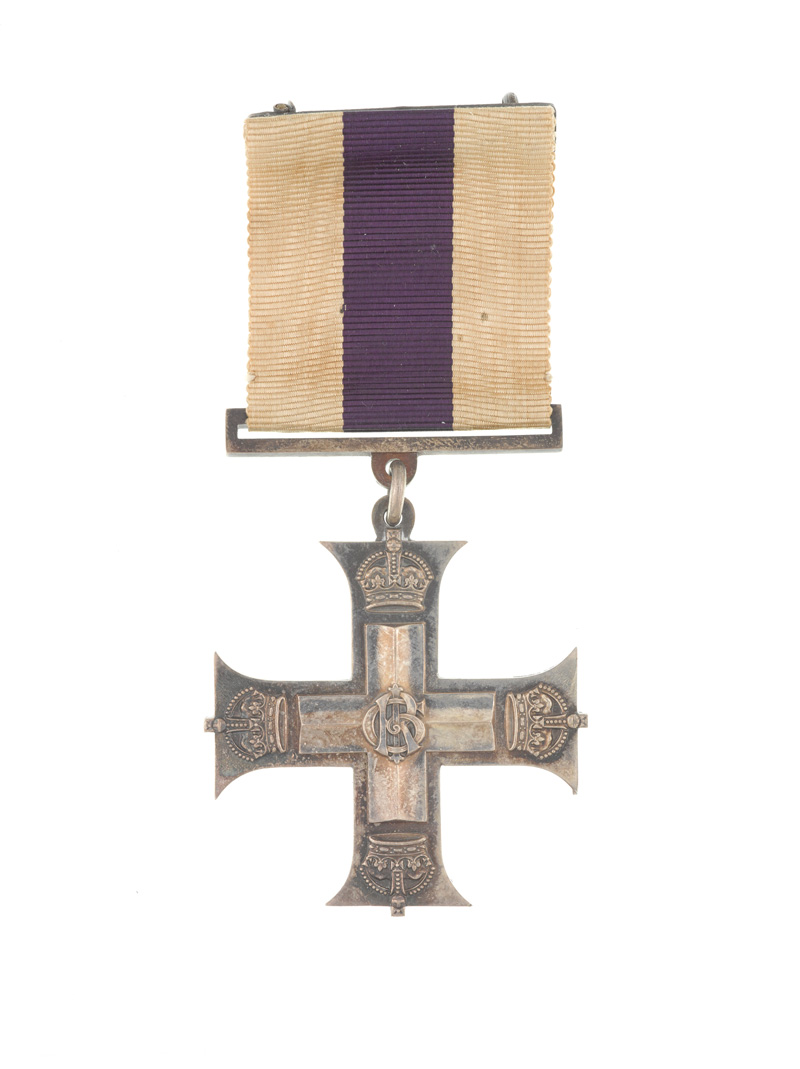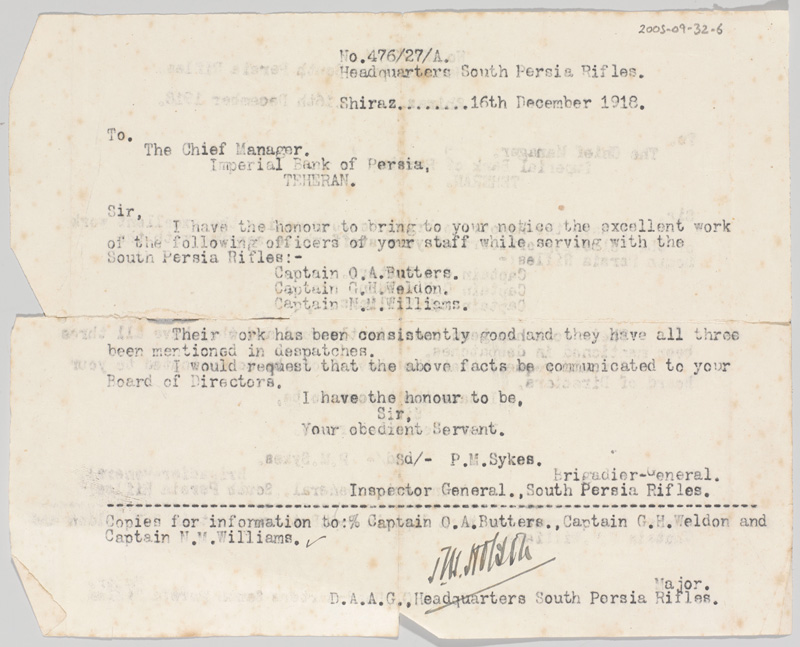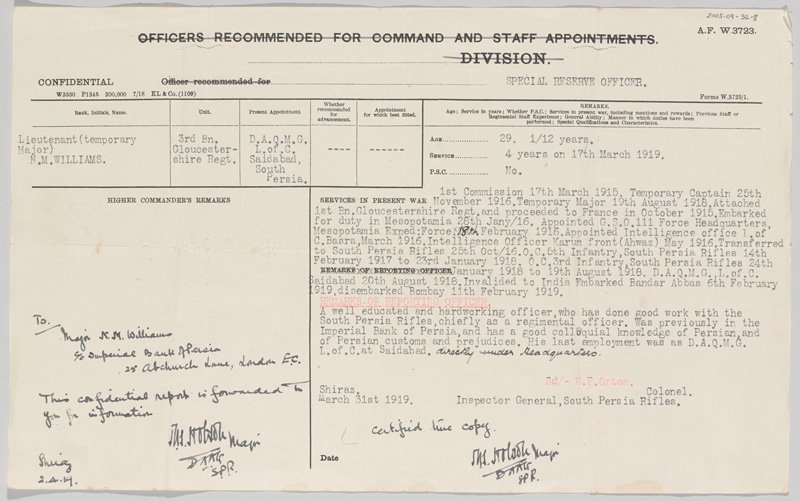Second Lieutenant Newton Williams, The Gloucestershire Regiment, 1915
More details: NAM. 2005-09-33-1
In June 1916, a British military mission began recruiting a locally-raised force in Persia. Among the officers involved was Captain Newton Williams, whose photographs, papers and medals shed some light on this little-known bid to bolster British interests in the region.
Influence in Persia
Persia (now Iran) hoped to remain neutral during the First World War, but ended up being occupied by Turkish, Russian and British troops. The latter two nations had divided Persia into spheres of influence: the British in the south, the Russians in the north.
In 1916 the British were engaged against the Turks in neighbouring Mesopotamia (now Iraq), so were keen to secure their military ascendancy over the Persian Gulf trade and communication routes, and protect their Anglo-Persian oil supplies. After the humiliation at Kut they also needed to reassert British prestige.
South Persia Rifles
When German agents and Persian nationalists started carrying out espionage and mobilising the southern tribes against the British, Brigadier-General Sir Percy Sykes was despatched to Persia.
Arriving in Kerman in June, Sykes set about recruiting for the South Persia Rifles. This unit was commanded by British officers and eventually consisted of around 8,000 Persian, Arab and Baluchi men in regular cavalry, infantry and artillery units alongside irregular tribal levies. It also included an attached force of 600 Indian Army sepoys.
In theory, the Rifles were supposed to serve the interests of both the British and the neutral, but weak, Persian government. In reality, the British held control.
There were, however, continuous debates on the British side as to whether Sykes’ mission was controlled by the Indian government or the Foreign Office, and whether he was undertaking a purely political mission or a military one.
Sykes’ mission
After establishing his headquarters at Shiraz, Sykes set about restoring order in the south. He paid subsidies to tribes who remained loyal, and rounded up enemy agents and their Persian allies.
The Rifles’ first action was at Bocaqci on 28 September 1916, where it defeated tribesmen who were being assisted by 25 escaped German prisoners. For the next two years it was involved in many similar incidents.
When hostile tribes, enemy agents and bandits attacked its posts and the villages of allied tribes and officials, the Rifles responded with force, rescuing hostages or retrieving stolen goods and cattle. Much time was also spent guarding and improving roads and the lines of communication to the Persian Gulf coast.
This was a type of warfare familiar to the Rifles’ British officers who had served on India’s unruly North West Frontier.
Mutiny
The force proved somewhat unreliable, and its existence increased the hostility of local tribal leaders, who saw it as a potential threat to their interests and independence.
In the summer of 1918 several tribes attacked Shiraz. A large proportion of the Rifles deserted, refusing to fight people from their own localities. Sykes and the British mission had to rely on their small Indian escort for protection.
One of the most serious incidents occurred at Abadeh, where the Rifles garrison, influenced by nationalist agitators, mutinied.
For his role in this engagement Captain Williams was Mentioned in Despatches by Sykes on 20 August 1918 and awarded the Military Cross.
‘For untiring devotion to duty and good work during the siege of Abadeh June 28th to July 17th 1918. This officer made a gallant reconnaissance on 29th June to positions in Abadeh town occupied by the enemy. He also showed capacity in his handling and subsequent disarmament of 200 men of the 3rd Infantry South Persia Rifles.’
Eventually, loyal troops and Indian Army reinforcements put down the rising, but not before bribes had been paid to several tribal leaders to end their support for it.
News of the Allied military successes elsewhere also weakened the resolve of most anti-British elements. Several ringleaders of the mutiny in the Rifles were executed. But this only served to further inflame anti-British sentiment.
Disbandment
The Rifles were finally disbanded in July 1921 by a new Persian government keen to assert its independence. The British were also reluctant to continue paying for the force.
They had spent the previous two years campaigning with some success against the robber bands in Fars and Isfahan provinces. While its British and Indian members returned home, many Persian veterans joined the newly-formed Persian Army.
Biography
Newton Middleton Williams (1890-1945) was born at Rathdown, Dublin, on 13 February 1890. After completing his education, he started work in 1910 as an accountant with the Imperial Bank of Persia in the City of London. The bank financed British commercial expansion in Persia and lent money to its government. Williams was responsible for opening one of their branches in Tehran.
Williams was appointed second lieutenant in the Special Reserve of officers on 17 March 1915. Posted to 3rd Battalion The Gloucester Regiment, he was soon promoted to temporary captain and transferred to the 1st Battalion, which was then in France fighting with the 1st Division. He proceeded to the Western Front in October 1915.
In January 1916 he embarked for the Mesopotamian theatre, initially serving as a staff officer at the Expeditionary Force’s headquarters in Basra, and then as an intelligence officer on the nearby Karun front.
In May 1916 his knowledge of Persia and its people resulted in a transfer to the South Persia Rifles. In October 1916 he was given command of the Rifles’ 5th Infantry Battalion, and in February 1917 he took over the 3rd Infantry.
In January 1918 Williams was appointed Deputy Assistant Quarter Master General, Lines of Communication. Promoted to temporary major on 19 August 1918, he remained in this post for the remainder of the war.
Invalided with sickness to Bombay in February 1919, Williams was posted back to the Special Reserve the following month. Colonel EF Orton, Inspector General of the South Persia Rifles, commented positively on his service and made special reference to his ‘knowledge of Persian and of Persian customs and prejudices’.
Williams’ Military Cross was gazetted on 12 September 1919. He was also mentioned in ‘The London Gazette’ of 20 January 1920 for his ‘distinguished service in the field’. He retired with the rank of captain in April of that year.
In May 1919 he was married to Eleanor Purdon Payne of Ballycultra, County Down, at St Mark’s, Tollington Park, Islington. In civilian life Williams worked as a merchant and lived at 43 Queensborough Terrace, London. He also spent much time in Persia as his company was a transport contractor of the Anglo-Persian Oil Company.
On the outbreak of the Second World War (1939-45) he returned to Britain and worked for the United Kingdom Commercial Corporation, which was later involved in the transport of supplies through Iran to the Soviet Union. He also wrote several press articles on the sea and land journey through the Persian Gulf across Iran to the Caspian Sea. He was then living at 45 Woodland Way, Petts Wood, Kent.
Williams was also engaged in fire prevention duties with the Civil Defence in the City of London from December 1943 until the end of 1944. He died on 7 May 1945 at the London Hospital in Whitechapel, aged 55.
Explore further
- Article: Other Soldier Stories
Explore the map for similar stories
Captain Newton Williams - Rathdown, County Dublin
 First World War in Focus
First World War in Focus